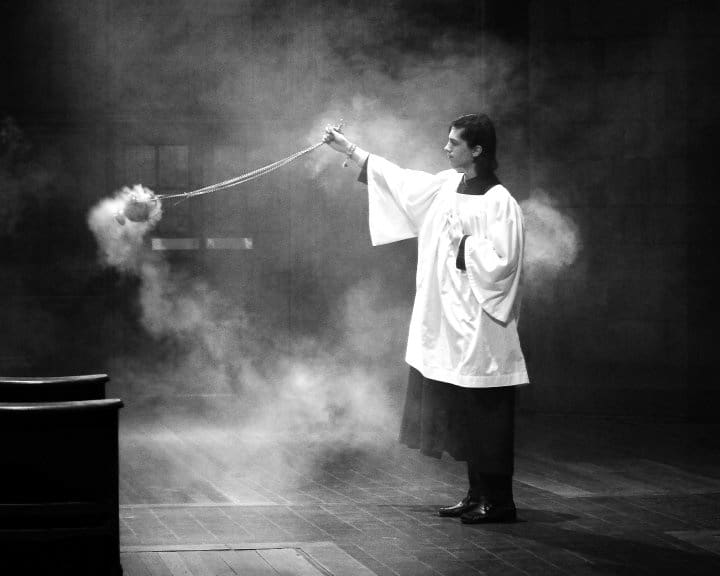A blog for Catholic men that seeks to encourage virtue, the pursuit of holiness and the art of true masculinity.
The Sacrifice of Praise

Have you ever wondered what a human being is made for? What are people really supposed to do?
Simply, were made to be eucharistic people. In Greek, the word eucharistia means “giving of thanks; gratitude; thanksgiving.” That is our purpose, to render thanks to God.
Put another way, thanksgiving is not simply a duty or an obligation—it is our natural state of being. As Chesterton put it, “Praise should be the permanent pulsation of the soul.”
God our Father gives all things to us in an endless act of generosity. “What do you have that you did not receive?” (1 Cor. 4:7). And as we receive with wonder all things from our loving Father, we are made to give back to him praise, adoration, thanksgiving, and love. All of creation was meant to be a glorious exchange—a giving of life and goodness and a giving back of thanksgiving.
Tragically, this ebb and flow between creature and Creator was destroyed by sin. We are no longer eucharistic as we were meant to be. We do not give thanks to God as we should, but rather extinguish gratitude with pride. Creation was meant to be a joyful roar of acclamation, but it is barely a whimper.
Of course, God does not need our praise, though he wants it. It is we who suffer from this brokenness and ingratitude. For truly, there is nothing more miserable, more shriveled, decayed, or unnatural, than an ungrateful person. An ungrateful soul is not healthy—it is diseased.
But the story does not end there. God does not leave us in our ungrateful misery. For some unfathomable reason, our good God loves his pitiful, broken creatures beyond measure. He has generously given us the medicine that will heal our spiritual wounds and restore us to our natural condition—namely himself.
Two thousand years ago, Jesus, our Lord and God, descended from heaven to a defiled earth and consumed himself on the holy cross as eucharistia, the supreme sacrifice of praise. This offering, this eucharistia, never ceases, but rather continues on every altar throughout the world.
He did what we could not do, and through him, all creation can once against sing the joyful hymn of praise. Moreover, our Lord does not just give himself for us, he gives himself to us. He offers himself as food, as medicine. When we receive the eucharist, we are transformed into him. We literally become what he is—eucharistia, a living sacrifice. Our natural condition is restored, and by his stripes we are healed.
So what is a human being made for? We were made to be broken open as living sacrifices, thanking and praising and loving God now and for all eternity.
“Therefore, I urge you, brothers and sisters, in view of God’s mercy, to offer your bodies as a living sacrifice, holy and pleasing to God—this is your true and proper worship” (Rom. 12:1).
Very, very powerful article. Hasn’t been taught in most of the churches I’ve attended for many, many years. If it have been taught, far fewer souls would have deserted.